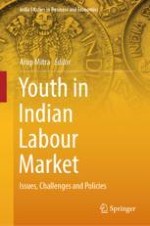2024 | OriginalPaper | Buchkapitel
An Analysis of Employment Effect of Projected Clean Energy Transition in India
verfasst von : Sujatra Bhattacharyya
Erschienen in: Youth in Indian Labour Market
Verlag: Springer Nature Singapore
Aktivieren Sie unsere intelligente Suche, um passende Fachinhalte oder Patente zu finden.
Wählen Sie Textabschnitte aus um mit Künstlicher Intelligenz passenden Patente zu finden. powered by
Markieren Sie Textabschnitte, um KI-gestützt weitere passende Inhalte zu finden. powered by
